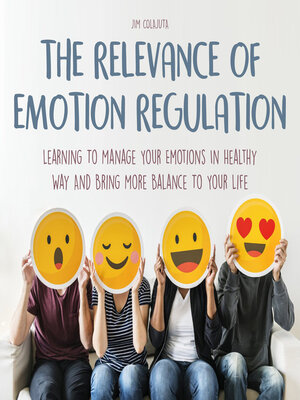
Sign up to save your library
With an OverDrive account, you can save your favorite libraries for at-a-glance information about availability. Find out more about OverDrive accounts.
Find this title in Libby, the library reading app by OverDrive.



Search for a digital library with this title
Title found at these libraries:
| Loading... |
Daily, we all experience emotions, both happy and negative. Most of us learn how to control, express, and cope with our emotions healthy as youngsters. Emotion regulation is more challenging for some people, sometimes due to terrible childhood events like abuse or trauma, sometimes due to a biological vulnerability to emotional sensitivity, and sometimes due to not being shown or taught how to manage challenging emotions.
We can learn to modify what feeling we experience, how intense it is when we have it, and how we react to it since emotions are not absolute and everlasting. Emotion regulation promotes psychological well-being and aids in the management of bad life events and stress.
There are various advantages to having better emotion regulation strategies to handle your emotions. Individuals who exercise emotional regulation are more robust and manage better with life's stresses. They have more effective coping mechanisms and are more tolerant of stress. Emotion regulation is a protective factor against anxiety and depressive symptoms. Furthermore, children who can control their emotions have greater flexibility in their thinking and higher focus, impulse control, and problem-solving abilities. These advantages cascade, resulting in more self-assurance, emotional well-being, and general satisfaction.
We can learn to modify what feeling we experience, how intense it is when we have it, and how we react to it since emotions are not absolute and everlasting. Emotion regulation promotes psychological well-being and aids in the management of bad life events and stress.
There are various advantages to having better emotion regulation strategies to handle your emotions. Individuals who exercise emotional regulation are more robust and manage better with life's stresses. They have more effective coping mechanisms and are more tolerant of stress. Emotion regulation is a protective factor against anxiety and depressive symptoms. Furthermore, children who can control their emotions have greater flexibility in their thinking and higher focus, impulse control, and problem-solving abilities. These advantages cascade, resulting in more self-assurance, emotional well-being, and general satisfaction.






